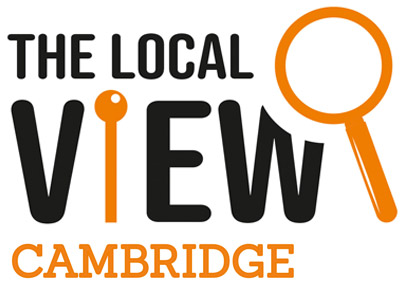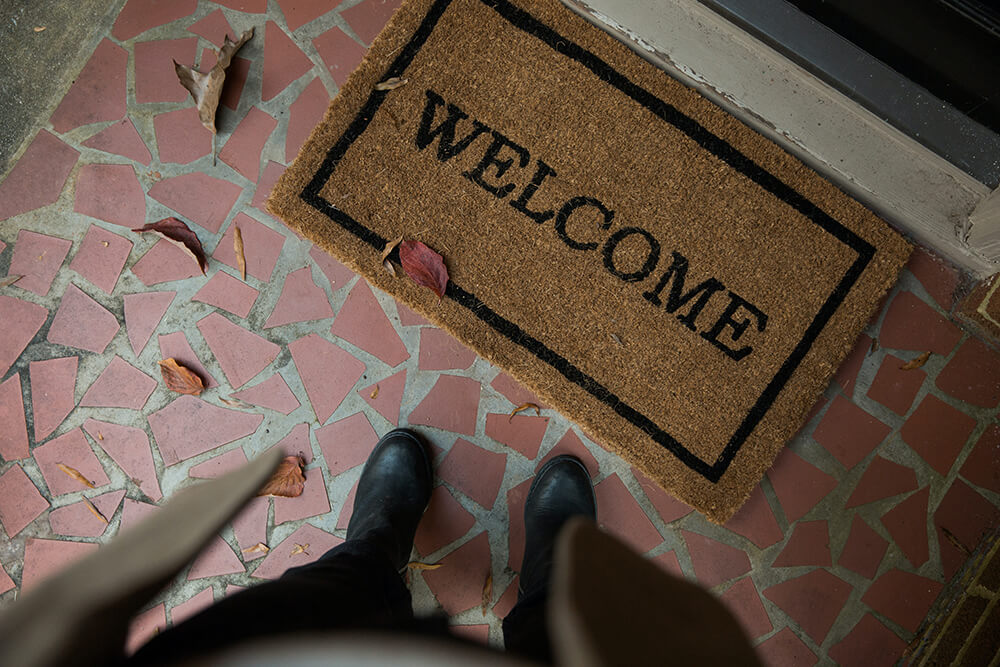As you may have seen in our previous articles, scammers try many different ways each and every day to dupe people out of their money or personal information. Letters, emails, fake websites, text messages and telephone calls are all ways that criminals make contact, with their false promises, threats or too-good-to-be-true offers to persuade people to part with their money. But even more worrying, perhaps, are the scams that are attempted on your doorstep. It can feel particularly unnerving for a fraudster to present at and know your home address, and to come face-to-face with them.
Here we explain some common doorstep scams and how you can avoid becoming a victim.

Rogue Traders
Rogue traders are people who knock on the door offering to do home improvement or landscaping works but who, if you accept, take your money and do little or no work, or work of a very poor standard.
One of the common tactics of a rogue trader is to explain that they have just completed some work nearby in order to build trust and confidence that they are working for your neighbours. They often say that they have some materials left over from that project. Therefore they can offer you a special one-time-only price for work on your home or garden. These are lies purely to get you to feel pressured into accepting their ‘offer’.
Another tactic that rogue traders employ is that they claim that they can see something that needs fixing on your property. They tell you it will only get worse or become an emergency if you don’t get it done right now. Often this relates to your roof or other parts of your home that you might find difficult to see yourself. Again, this is designed to pressurise you into agreeing to work.
Rogue traders usually ask for money up front ‘for materials’. However, unfortunately very often they take the money and do not return. In other cases, rogue traders do some work but leave it unfinished or of a very poor standard which requires putting right by a genuine tradesperson.
Tip: Do not agree to any works proposed by someone knocking on your door. Decent traders do not need to cold call to find business. If you’re thinking of having some home or garden works done and don’t have any recommendations from friends or family, then visit Safe Local Trades www.safelocaltrades.com or Buy With Confidence www.buywithconfidence.gov.uk to find vetted and approved traders.
Tip: Genuine traders won’t ask for money up front. Do not give any trader money before works are underway.
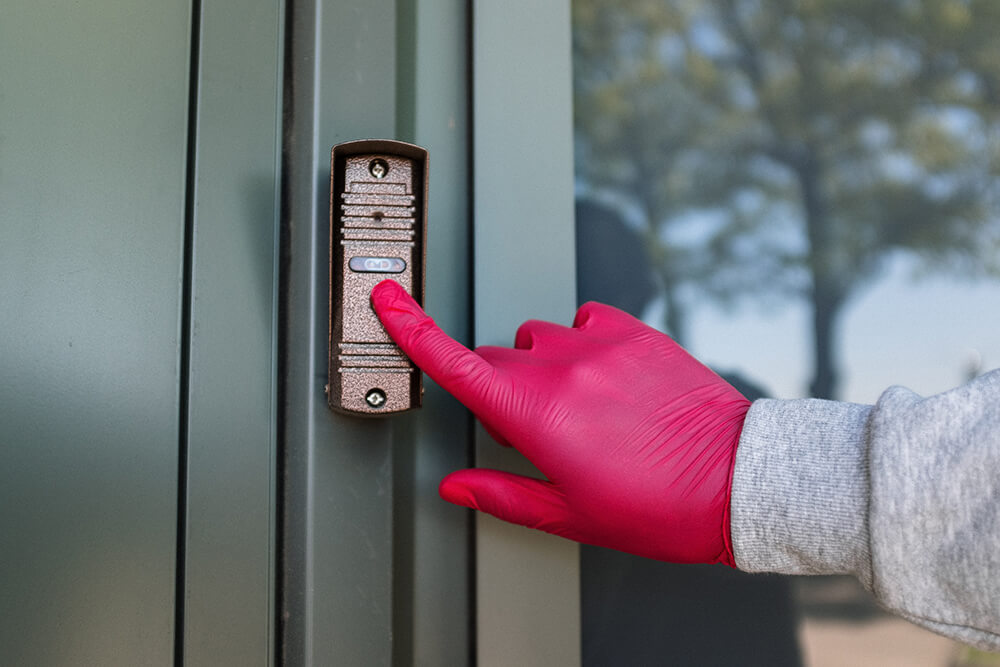
Distraction Burglars
Distraction burglars use tactics to distract a resident so that an accomplice or accomplices can enter to search the property for cash and valuables. Often they claim to be from a utility company and use now-defunct terms like ‘the water board’ or ‘the gas board’ which they consider the older people they usually target will be familiar with. Or they may claim to be from a charity or to need help, for example with a lost dog. They will keep the victim engaged long enough that their partner in crime can enter the house.
Tip: Always ask for ID from anyone claiming to be from a charity, utility company or the police. A genuine visitor will not mind providing identification and waiting for you to establish its authenticity. See below for further details.
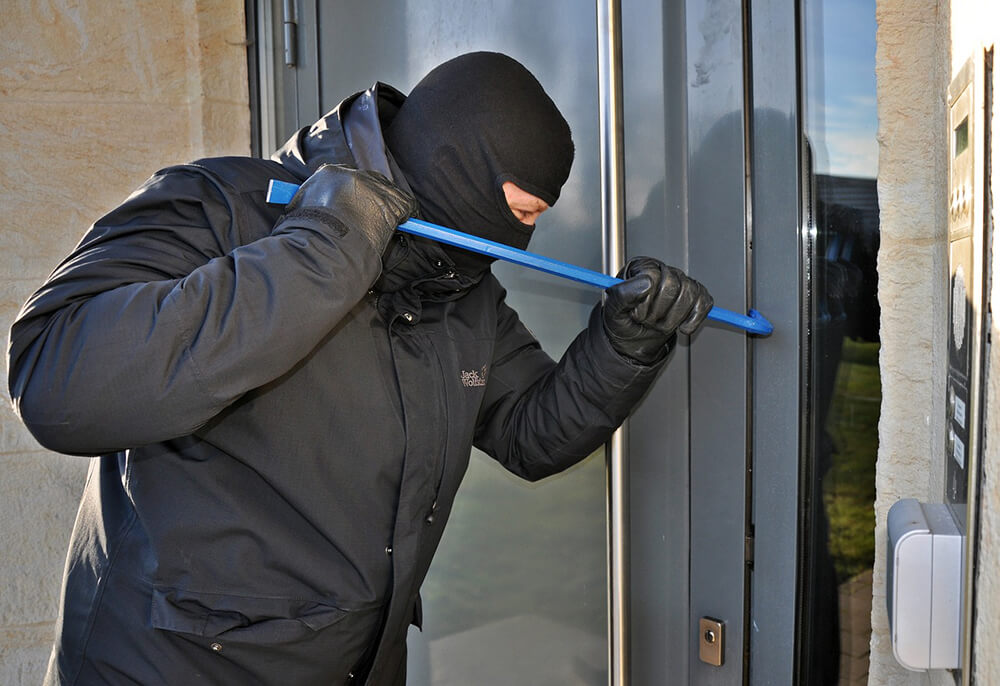
Nottingham Knockers
Despite what their name suggests, these cold callers don’t confine themselves to the Midlands city and may turn up anywhere!
Nottingham Knockers carry large holdalls filled with items that they offer as they go from door-to-door. They often claim to have been in prison and are now on a rehabilitation programme or some other story to tug at your heart strings in a bid to get you to buy from them.
Unfortunately, the products offered, typically cleaning products such as dusters and sprays, are usually overpriced. They’re often just under ten pounds for each item so that you have to grab a note to pay. This is suspected to be a tactic to ascertain whether cash is kept in the property – perhaps for a revisit to burgle.
General Tips for Dealing with Uninvited Callers
Remember, you do not have to answer the door to anyone you are not expecting. Your home should be a place where you can feel safe and undisturbed. It is not rude to not answer the door.
We recommend you display a sticker on your door or somewhere nearby stating that you do not buy or sell at the door. Our Against Scams Partnership can provide one of these. Please send your request to against-scams@cambridgeshire.gov.uk . Whilst the stickers do not stop the most determined people from knocking on the door, they do give residents the confidence to not engage with the caller. You can simply point to the sticker to stop the conversation in its tracks.
When you go to answer your front door, always ensure you have closed and locked all other doors and windows.
Use a security chain every time you answer the door. These allow the visitor only a small window into your world. Remember not to leave it on all the time though, in case emergency services ever need access. The Cambridgeshire Bobby Scheme can supply and fit door chains and other home security equipment for over 65s, disabled and vulnerable people for a small fee. It’s free if you are over 60 and have been a victim of crime in your home. Contact 01480 413311 www.thebobbyscheme.org
Always ask for and check ID for anyone claiming to be an official. This means taking the card in your hand and checking it hasn’t been tampered with, such as having any photographs or other information stuck onto it. Check the photograph bears a true likeness to the visitor. Then contact their employer on a number you know to be correct, not a number on the card. For example, use a statement, the company’s website, or dial 101 if they claim to be police. A genuine caller will be pleased that you are exercising such caution.
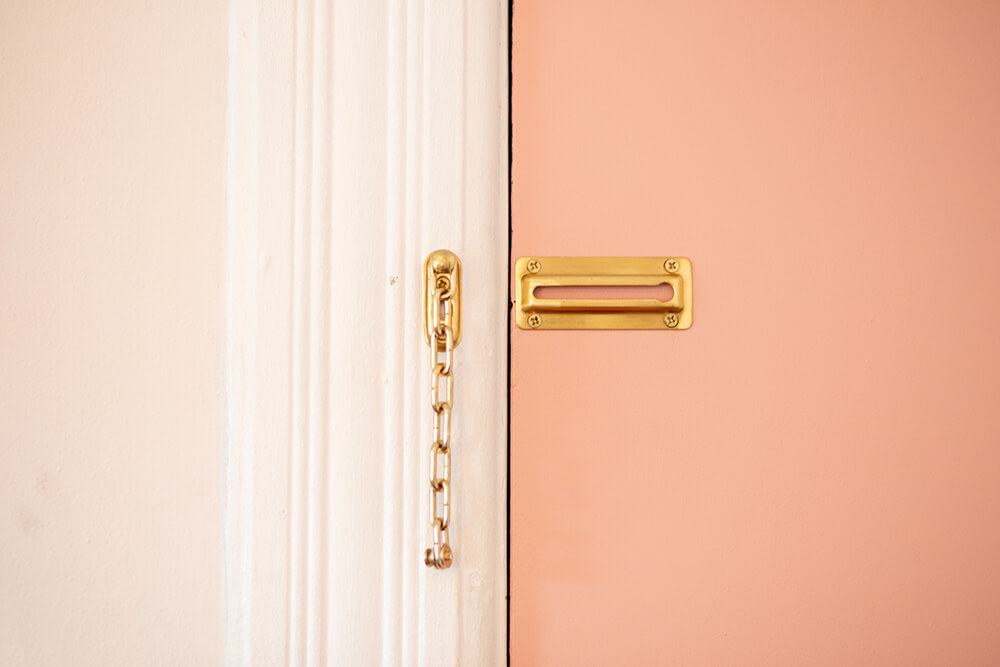
Cambridgeshire and Peterborough Against Scams Partnership (CAPASP) have a library of free resources to help people stay safe from scams. This includes a section on doorstep scams. Visit www.cambridgeshire.gov.uk/against-scams
For support and advice on scams, call Citizens Advice Consumer Service on 0808 223 1133 https://www.citizensadvice.org.uk/
Report ‘live’ incidents of doorstep scams to the Police on 999. To report after the event, call the non-emergency number 101.
